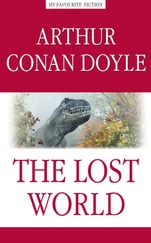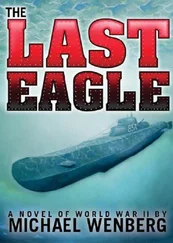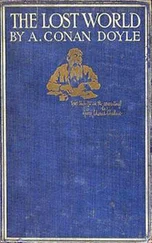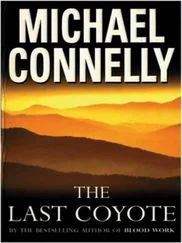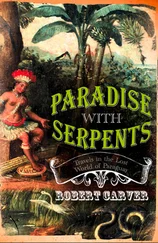Michael Crichton - The Lost World
Здесь есть возможность читать онлайн «Michael Crichton - The Lost World» весь текст электронной книги совершенно бесплатно (целиком полную версию без сокращений). В некоторых случаях можно слушать аудио, скачать через торрент в формате fb2 и присутствует краткое содержание. Жанр: Детская проза, на английском языке. Описание произведения, (предисловие) а так же отзывы посетителей доступны на портале библиотеки ЛибКат.
- Название:The Lost World
- Автор:
- Жанр:
- Год:неизвестен
- ISBN:нет данных
- Рейтинг книги:5 / 5. Голосов: 1
-
Избранное:Добавить в избранное
- Отзывы:
-
Ваша оценка:
- 100
- 1
- 2
- 3
- 4
- 5
The Lost World: краткое содержание, описание и аннотация
Предлагаем к чтению аннотацию, описание, краткое содержание или предисловие (зависит от того, что написал сам автор книги «The Lost World»). Если вы не нашли необходимую информацию о книге — напишите в комментариях, мы постараемся отыскать её.
The Lost World — читать онлайн бесплатно полную книгу (весь текст) целиком
Ниже представлен текст книги, разбитый по страницам. Система сохранения места последней прочитанной страницы, позволяет с удобством читать онлайн бесплатно книгу «The Lost World», без необходимости каждый раз заново искать на чём Вы остановились. Поставьте закладку, и сможете в любой момент перейти на страницу, на которой закончили чтение.
Интервал:
Закладка:
A few yards away, the stegosaurus paused, glanced at her, taking in her new upright appearance. When she did not move, it became indifferent once again, and returned to drinking from the river.
"I'll be damned," she said.
She looked at her watch. It was one-thirty in the afternoon, the sun still high overhead. She couldn't use the sun to navigate, and the afternoon was very hot. She decided she had better start walking, and try and find Malcolm and Thorne. Barefooted, moving stiffly, her muscles aching, she headed into the jungle, away from the river.
After walking half an hour, she was very thirsty, but she had trained herself to go without water for long periods in the African savannah. She continued on, indifferent to her own discomfort. As she approached the top of a ridge, she came to a game trail, a wide muddy track through the jungle. It was easier walking along the trail, and she had been following it for about fifteen minutes when she heard an excited yelping from somewhere ahead. It reminded her of dogs, and she proceeded cautiously.
Moments later, there was a crashing sound in the underbrush, corning from several directions at once, and suddenly a dark-green, lizard-like animal about four feet high burst through the foliage at terrific speed, shrieked, and leapt over her. She ducked instinctively, and hardly had time to recover before a second animal appeared and raced past her. Within instants, a whole herd of animals was running past her on all sides, yelping in fear, and then the next one brushed against her and knocked her over. She fell in the mud as other animals leapt and crashed around her.
A few feet ahead on the trail she saw a large tree with low-hanging branches. She acted without thinking, jumping to her feet, grabbing the branch, and swinging up. She reached safety just as a new dinosaur, with sharp-clawed feet, rushed through the maid beneath her, and chased after the fleeing green creatures. As this animal went away from her, she glimpsed a dark body, six feet tall, with reddish stripes like a tiger. Soon after, a second striped animal appeared, then a third - a pack of predators, hissing and snarling, as they pursued the green dinosaurs.
From her years in the field, she found herself automatically counting the animals that rushed past her. By her count, there were ten striped predators, and that immediately piqued her interest. It made no sense, she thought. As soon as the last of the predators was gone, she dropped down to the ground arid hurried to follow them. It occurred to hey that it might be foolish to do so, but her curiosity overcame her.
She chased the tiger-dinosaurs up a hill, but even before she reached the crest she could tell from the snarls and growls that they had already brought an animal down. At the crest, she looked down on their kill.
But it was like no kill she had ever seen in Africa. On the Seronera plain, a kill site had its own organization which was quite predictable, and in a way was almost stately. The biggest predators, lions or hyenas, were closest to the carcass, feeding with their young. Farther out, waiting their turn, were the vultures and marabou storks, and still farther out, the jackals and other small scavengers circled warily. After the big predators finished, the smaller animals moved in. Different animals ate different parts of the bodies: the hyenas and vultures ate bones; the jackals nibbled the carcass clean. This was the pattern at any kill, and as a result there was very little squabbling or fighting around the food.
But here, she saw pandemonium - a feeding frenzy. The fallen animal was thickly covered with striped predators, all furiously ripping the flesh of the carcass, with frequent pauses to snarl and fight with each other. Their fights were openly vicious - one predator bit the adjacent animal, inflicting a deep flank wound. Immediately, several other predators snapped at the same animal, which limped away, hissing and bleeding, badly wounded. Once at the periphery, the wounded animal retaliated by biting the tail of another creature, again causing a serious wound.
A young juvenile, about half the size of the others, kept pushing forward, trying to get at a bit of the carcass, but the adults did not make room for it. Instead, they snarled and snapped in fury. The youngster was frequently obliged to hop back nimbly, keeping its distance from the razor-sharp fangs of the grownups. Harding saw no infants at all. This was a society of vicious adults.
As she watched the big predators, their heads and bodies smeared in blood, she noticed the crisscross pattern of healed scars on their flanks and necks. These were obviously quick, intelligent animals, yet they fought continually. Was that the way their social organization had evolved? If so, it was a rare event.
Animals of many species fought for food, territory, and sex, but these fights most often involved display and ritual aggression; serious Injury seldom occurred. There were exceptions, of course. When male hippos fought to take over a harem, they often severely wounded other males. But in any case, nothing matched what she saw now.
As she watched, the wounded animal at the edge of the kill slunk forward and bit another adult, which snarled and leapt at it, slashing with its long toe-claw. In a flash, the injured predator was eviscerated, coils of pale intestine slipping out through a wide gash. The animal fell howling to the ground, and immediately three adults turned away from the kill and jumped onto its newly fallen body, and began to tear the animal's flesh with rapacious intensity.
Harding closed her eyes, and turned away. This was a different world, and one she did not understand at all. In a daze, she headed back down the bill, moving quietly, carefully away from the kill.
Noise
The Ford Explorer glided quietly forward along the jungle path. They were following a game trail on the ridge above the valley, heading down toward the high hide, in the valley below.
Thorne drove. He said to Malcolm, "You were saying earlier that you knew why the dinosaurs became extinct…"
"Well, I'm pretty sure I do," Malcolm said. "The basic situation is simple enough." He shifted in his seat. "Dinosaurs arose in the Triassic, about two hundred million years ago. They proliferated throughout the Jurassic and the Cretaceous periods that followed. They were the dominant life form on this planet for about a hundred and fifty million years - which is a very long time."
"Considering we've been here for only three million," Eddie said.
"Let's not put on airs," Malcolm said. "Some puny apes have been here for three miIlion years. We haven't. Recognizable human beings have only been on this planet for thirty-five thousand years," he said. "That's how long it's been since our ancestors painted caves in France and Spain, drawing pictures of game to invoke success in the hunt. Thirty-five thousand years. In the history of the earth, that's nothing at all. We've just arrived."
"Okay…"
"And of course even thirty-five thousand years ago, we were already making species extinct. Cavemen killed so much game that animals became extinct on several continents. There used to be lions and tigers in Europe. There used to be giraffes and rhinos in Los Angeles. Hell, ten thousand years ago, the ancestors of Native Americans hunted the woolly mammoth to extinction. This is nothing new, this human tendency - "
"Ian.'
"Well, it's a fact, although your modern airheads think it's all so brand-new - "
"Ian. You were talking about dinosaurs."
"Right. Dinosaurs. Anyway, during a hundred and fifty million years on this planet, dinosaurs were so successful that by the Cretaceous there were twenty-one major groups of them. A few groups, like the camarasaurs and fabrosaurs, had died out. But the overwhelming majority of dinosaur groups were still active throughout the Cretaceous. And then, suddenly, about sixty-five million years ago, every single group became extinct. And only the birds remained. So. The question is - What was that?"
Читать дальшеИнтервал:
Закладка:
Похожие книги на «The Lost World»
Представляем Вашему вниманию похожие книги на «The Lost World» списком для выбора. Мы отобрали схожую по названию и смыслу литературу в надежде предоставить читателям больше вариантов отыскать новые, интересные, ещё непрочитанные произведения.
Обсуждение, отзывы о книге «The Lost World» и просто собственные мнения читателей. Оставьте ваши комментарии, напишите, что Вы думаете о произведении, его смысле или главных героях. Укажите что конкретно понравилось, а что нет, и почему Вы так считаете.

